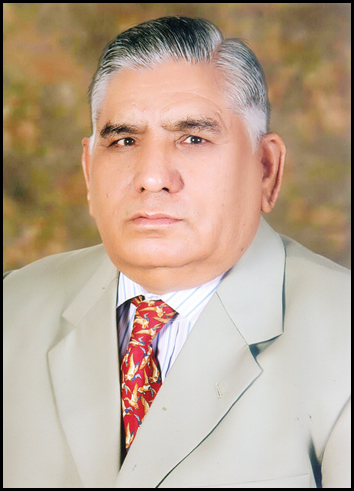

Shaukat Ali Jawaid
During a recent visit to Punjab province, I observed a growing sense of demoralization among healthcare professionals working in public sector institutions. One senior academician remarked that the authorities have effectively created a perception among the public that doctors do not work. It is now commonly announced in hospitals that if a doctor writes a prescription and asks patients to purchase medicines from outside, it should be reported immediately—since all required medications are supposedly available in the hospital, including the OPDs.
As a result, when a patient requires life-saving drugs that are unavailable in the hospital, doctors often choose not to prescribe them, opting instead to administer whatever is available. In one incident, I was told that doctors, recognizing the urgency of a critical case, purchased the necessary medication from their own pockets and provided it to the patient. When the administration later asked the patient whether he had bought the medicine from the market, he responded affirmatively, but did not disclose that the funds were provided by the doctors themselves. Despite their good intentions, the doctors faced disciplinary action. Since then, many healthcare professionals have become overly cautious—disillusioned, frustrated, and demoralized—choosing not to take such initiatives. Tragically, it is the patients who suffer as a result.
The government has also introduced measures to enforce punctuality and discipline, aiming to ensure doctors remain present in hospitals. It is true that in the past, some doctors arrived late or left early. However, many of these individuals were appointed through favoritism, backed by influential figures in the administration or bureaucracy, rather than on merit. Unfortunately, instead of targeting these specific individuals, the authorities chose to penalize the entire medical community—a decision that cannot be justified. These actions have severely impacted morale, and the frustration among healthcare workers is now palpable.
While the authorities’ goal—to ensure doctors attend OPDs, conduct ward rounds, and participate in teaching and training—is understandable, the failure lies largely with institutional leadership. Had medical institutions heads been appointed on merit and held accountable for their responsibilities, such interventions would not be necessary. In most cases, it is their reluctance to enforce discipline among colleagues that opens the door for bureaucratic interference.
It is essential to recognize that healthcare professionals, who represent the educated elite of society and who often serve with sincerity and dedication, should not be managed as though they were unskilled laborers. No one supports unethical behavior, absenteeism, or professional negligence. Those guilty must indeed be held accountable—but only after fair, independent investigations and an opportunity to present their side of the story.
However, when donkeys and horses are treated alike, even the horses will refuse to run. If this continues, authorities will struggle to attract competent and experienced professionals. Many will merely pass time, waiting for better opportunities, and will leave as soon as they arise.
Another area of concern is the relationship between physicians and the pharmaceutical industry. The National Bioethics Committee Guidelines are not implemented. The medical profession must return to the auditoriums and lecture halls of teaching institutions, rather than hosting academic activities in the banquet halls of five-star hotels. Most such events can be easily organized within medical institutions, but they appears to be more interest in promoting the hotel industry than in strengthening academic institutions. While security considerations may occasionally necessitate holding international conferences in hotels, this should be the exception—not the norm.
Unfortunately, this shift has encouraged many unethical practices, further tarnishing the image of the medical profession. Even someone as respected as the late Prof. Kh. Sadiq Husain, known for his honesty and intellectual integrity, once remarked:
“The medical profession in Pakistan has been infected with the CC Virus — Commercialization and Corruption.”
He made this observation during his keynote address at an international conference organized by the College of Physicians and Surgeons Pakistan in Karachi. When I met him just two weeks before his passing, I asked if he had any regrets. He paused for a moment and said, “Yes, I regret that I could not do much to eliminate the CC Virus.”
It is not too late. God-fearing and ethically conscious healthcare professionals must rise to the occasion. The government would also do well to revisit its administrative approach and introduce necessary reforms. It has already been reported that the Punjab Government is struggling to recruit consultants for newly established, state-of-the-art healthcare facilities. Recent incidents where senior healthcare professionals were publicly humiliated have sent a damaging message to the medical community, potentially affecting not only patient care, but also medical education and training in public institutions.
We have long advocated for self-discipline, self-monitoring, and self-accountability within the profession. However, if the profession fails to regulate itself, others will do it—and that will be a painful process.



